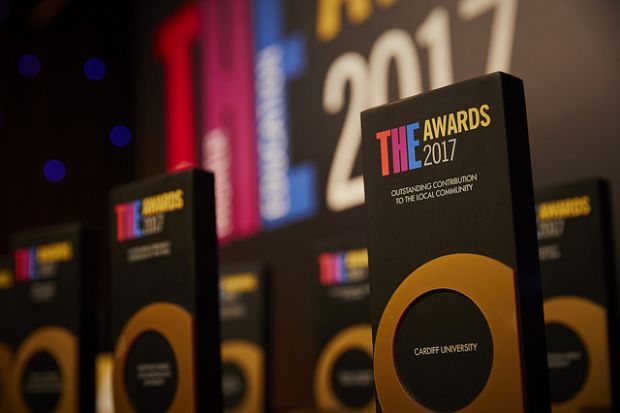It is always interesting to be asked to sit on a judging panel – there is an element of the unexpected when it comes to the applications and how you’re going to blend with your fellow judges, and in the THE Awards it is also fascinating to see how universities “sell” what they do. There are amazing things going on in higher education that I know about only because I sit on this panel, and frankly I wish more people knew about them!
In last year’s THE Awards the judges were asked to work through 15 categories, each containing up to six shortlisted entries. Between us we can offer a wide range of experiences and expertise, and on the judging day each category discussion is led by a specialist in the relevant field. Inevitably, one may feel more comfortable making judgements in some categories than others, so a clear and well-written submission addressing the criteria will always be at an advantage.
With so many shortlisted applications to go through, the main submission text is reassuringly limited in length, but this also sets a challenge for authors to make their entry stand out from the crowd.
In addition, entrants can submit supporting documents, providing an opportunity to include solid evidence backing up statements in the submission – it’s surprising how many entrants make claims, but don’t back them up, so don’t fall into that trap.
While each judge has a broad-based knowledge of the sector, entrants should not assume that they are all experts in every field – but it would be extremely risky to try to pull the wool over our eyes. The breadth and depth of knowledge contained within the panel means one of us is always likely to spot where you may have been tempted to stretch the truth a little.
Some judges have excellent memories and will notice if you just reproduce the same application as last year, or even the year before that. Remember: we’re happy to consider a project we’ve seen before, but please freshen-up the submission and focus on activity during the new year in question.
I would also advise you not to simply pass the information on to your marketing department and leave them to write your entry – the best entries are clearly collaborations between those involved in the activity concerned and those entrusted with telling the story. When a first draft has been produced, why not ask a senior member of the team whose work is being featured to read the application and imagine it is from another institution? Does it address the key criteria? Does it contain evidence showing how you have excelled in those areas? Is it convincing? Does it make the reader want to know more about what you’ve done?
Remember, we can only judge on the evidence before us. It is not the judges’ responsibility to make your case for you.
Here are a few other pieces of advice:
- Get the time period right. The THE Awards always focus primarily on activity during the last completed academic year (so, for the 2018 awards, that’s 2016-17)
- Take care over your submission and make it clear what the effect of your activity has been
- If appropriate, explain why your work is different – but please don’t tell us you are different if you can’t offer evidence to support that assertion. It is possible that we have just read another entry making the same claim about the very same thing
- Keep it relevant. Telling us that you have been around for 40 or 100 years this year is not in itself a reason to honour you, so unless milestones such as this are key to the entry, please leave them out
We thoroughly enjoy judging these awards – and know that we’re in a privileged position when institutions from all corners of the UK choose to present their proudest achievements to us every year. We also prefer our choices to be tough ones, so please read the Entry Guidelines, address the criteria, be clear and concise, and tell a good story. Then you will stand as good a chance as anyone, and we’ll really have our work cut out.
Anne Kiem is the chief executive of the Chartered Association of Business Schools.
Register to continue
Why register?
- Registration is free and only takes a moment
- Once registered, you can read 3 articles a month
- Sign up for our newsletter
Subscribe
Or subscribe for unlimited access to:
- Unlimited access to news, views, insights & reviews
- Digital editions
- Digital access to THE’s university and college rankings analysis
Already registered or a current subscriber?










